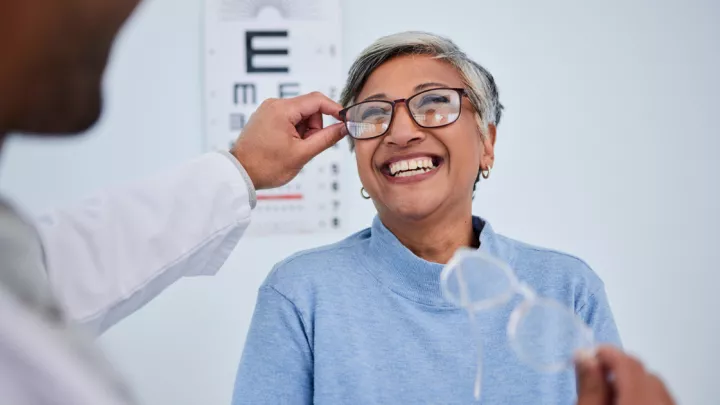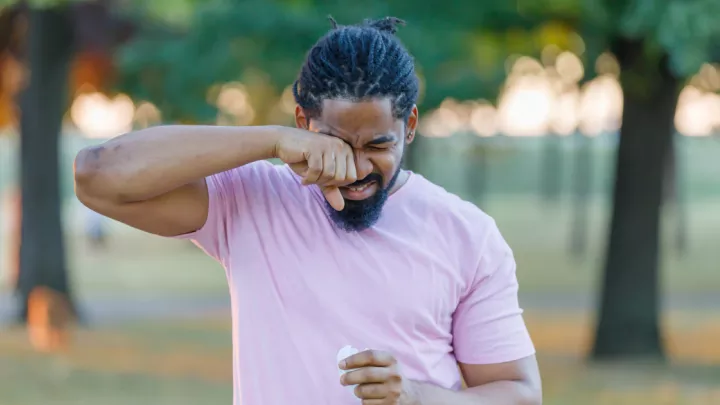How do sunglasses protect your eyes?

When you think of protecting your body from the sun, sunscreen is probably one of the first products that comes to mind. Still, sunscreen isn’t the only tool you need to fight against the sun’s damaging rays. Sunglasses aren’t just for summer fashion; they’re a year-round accessory to protect your eyes from issues caused by the sun.
How the sun and UV rays damage your eyes
“Over time, the accumulation of UV exposure can increase the rate of progression of age-related eye diseases like cataracts and macular degeneration,” says optometrist Muriel Jepsen, OD. “So, I recommend wearing sunglasses to everyone.”
Sunglasses help slow down these common conditions, so wearing sun protection outdoors is essential. “In addition to cataracts and macular degeneration, sunglasses protect your eyes from developing pterygia, or growths on the surface of the eye, and reduce the risk of skin cancers of the eyelids that result from excessive sun exposure,” says Dr. Jepsen.
While most people may know they need sunglasses on sunny days, you still get sun exposure when it’s cloudy, so wearing sunglasses during overcast days is vital for eye safety.
How sunglasses protect your eyes
Sunglasses block out the sun’s UV rays, responsible for sun-related damage to your eyes and skin. “So, when you’re looking for sunglasses, choose a pair that blocks out UVA and UVB,” says Dr. Jepsen. Most sunglasses should have a sticker indicating if they block both types of sun rays. This UVA and UVB ray protection is the most crucial trait of sunglasses and will help slow down age-related changes.
“If you’re going to an optical center, those sunglasses are vetted and good quality,” says Dr. Jepsen. But if you’re buying them from an online retailer, you might not know where they came from and if they actually block both types of UV rays.
Polarization isn’t as critical for your sunglasses in terms of everyday use. Still, you may want a pair of polarized sunglasses in situations with a lot of glare. “For example, polarized lenses can reduce glare from other cars while driving, reflections when out on the water, and reflections off of snow,” says Dr. Jepsen.
At what age should you start wearing sunglasses
Those with children should have their kids wearing sunglasses as young as possible. “They make sunglasses for little kids and infants,” says Dr. Jepsen. “If it’s possible to get them to wear and keep them on, you should.” If your child won’t keep sunglasses on, at least wearing a hat with a brim blocks out some of the overhead sun rays, especially if they’re outside for long periods.
Choosing the right pair of sunglasses
When selecting a pair of sunglasses, you must look beyond the shade of the lenses. “Just because a lens is dark doesn’t mean it protects you from the sun,” says Dr. Jepsen. “A lens can be dark and have no UV blocking power – in which case, you’re allowing a large pupil to let in a lot of light, which can do a lot of damage.”
“I tell my patients, when it comes to worrying about cataract progression or macular disease, wearing sunglasses is one of those passive actions you can take to help your eye health,” says Dr. Jepsen.
If you have questions about your eye health or want to schedule an eye exam, call 800.922.0000. Looking for a new pair of sunglasses? Stop by one of our two convenient optical shop locations to purchase optometrist-approved styles.
3902 Leavenworth St.
402.559.2020
110 N. 175th St.
402.559.2020







